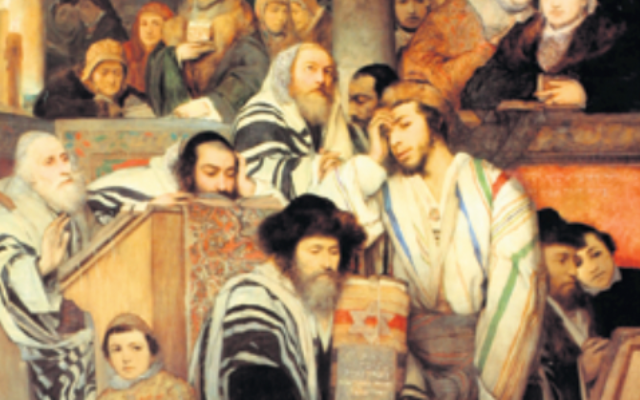Two sides to Yamim Noraim obligations
The High Holy Days are about the relationship between a person and Hashem.
As Rosh Hashanah approached, the questions on everyone’s lips were whether we would be allowed to attend shule services or be required to celebrate the High Holy Days from our home. If we were allowed to be at shule, how many might be allowed to attend at any given time? What would happen to the hearing of the shofar? How does one pray at home without the guidance of a rabbi or chazzan?
To all these questions and many more, rabbis from across the rabbinate put much effort into finding solutions.
However, the truth is that these very pertinent and relevant issues all represent only one stream of concerns during the High Holy Day period.
They represent what we call “Bein adam l’Makom – between a person and Hashem”. This expression refers to the religious or ritual mitzvot, our sacred obligations, dealing with one’s relationship with God. The Mishnah (Yoma 8:9) relates how the day of Yom Kippur itself has the power to atone for sins between a person and God.
There is another stream which is equally important.
And it is a stream which isn’t dependent on the shule opening or on the level of restrictions that are in place at the time.
This is known as “bein adam l’chavero – between a person and their fellow”. It relates to our interpersonal relationships, and mitzvot concerned with behaviour towards our fellow human beings.
It is at this time of year that we need to review our relationships. We need to do our utmost to make amends for those things we have done that have caused hurt to others. God cannot forgive us for such transgressions until we have approached those we have wronged. And that aside we need to consider forgiving someone who may have caused us hurt. For we are told if we are merciful, God will be merciful to us.
These are not easy issues to address. Relationships can be extremely complex with many factors at play all the time. Every and each situation is unique and there is no “one size fits all” solution to dealing with such issues. Nonetheless, we need to bring them into the spotlight and give them our considerable attention.
And so, in relation to dealing with our interpersonal relationships and trying to resolve any issues, I would like to suggest a few pointers.
If you are the one seeking forgiveness, make sure it comes from a place of sincerity and genuineness. Don’t just go through the motions. You need to feel remorse or regret and commit to behaving differently in the future. Be careful not to qualify the apology with a “but” or with blame shifting. Demonstrate sincerity, remorse and self-awareness.
If you are the person that is being asked to forgive, I present the following.
There are varying levels or stages in which you could accept the apology and offer forgiveness. Note that forgiving someone doesn’t mean that they should necessarily be absolved from the wrong they have done. They may indeed still need to face the consequences of their actions. The first step then is to not wish harm on the other person. (This is often a very tough aspect from which to let go). Next would be to find a way to let go of the anger we feel towards the other person. (This is usually far more beneficial for the person accepting the forgiveness as it helps lighten the load they may be carrying). Finally, and this is not always possible, work to restore the relationship. So, if a person is genuinely asking for your forgiveness, I believe that in the spirit of Yom Kippur we can certainly work to offer the first two stages of forgiveness and in certain circumstances achieve the third one too.
COVID-19 has certainly been a trying time in many ways and it has put our relationships in the spotlight. It has helped us realise the value in connecting with other humans and in particular those who are closest to us.
Unfortunately, we all make mistakes. I know I’ve made my fair share. We might have unintentionally hurt another person by the words we chose or perhaps even by forgetting to be in touch at all. We may have forgotten to phone someone or invite another. Whatever we have done to others or others have done to us, now is an opportune time to assess our relationships and I hope the pointers above can assist in resolving any of these issues.
I certainly don’t have a magic ball to know what the future holds. But instead of using this time solely focused on the aspects which are really out of our control, let’s use the time to work on the things that we can change. The truth is, every mitzvah “bein adam l’chavero” is ultimately also a mitzvah “bein adam l’Makom”, for God Himself commanded us in the Torah to love others and Hashem “shepps true nachas” when His children get along with each other.
We are all disappointed that this year the High Holy Days are once again indeed different from normal. There is little we can do in that regard. But that’s only for one stream. However regarding the other stream it is in our hands to do things differently – and thereby achieve a wonderful new year for all.
Daniel Rabin is rabbi of the South Caulfield Hebrew Congregation


comments